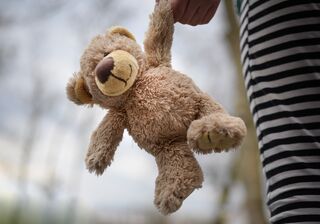

Childhood sexual abuse is a serious problem globally. The Centers for Disease Control (CDC) estimates that one in four girls and one in 13 boys will experience sexual abuse by the time they reach 18. Sexual abuse is the most under-reported crime as there are many barriers to reporting sexual abuse, including fear, shame, self-blame, and concern about upsetting others or not being believed. However, research suggests that early disclosure of abuse and subsequent support from family, friends, and professionals, especially within the first year following abuse can lead to better long-term outcomes.
Unfortunately, one study found that almost half of young adults who experienced childhood sexual abuse never disclosed the abuse to anyone, and other studies have found even lower rates of disclosure. As such, it is imperative that family, friends, and professionals are aware of the signs and symptoms of childhood sexual abuse so that they can stop the abuse, prevent future abuse, and get the child the help that they need.
There can be physical, behavioral, and emotional signs of abuse and these signs can differ depending upon the age of the child.
Physical signs of childhood sexual abuse:
Behavioral signs of childhood sexual abuse:
Emotional signs of childhood sexual abuse:
Physical signs of childhood sexual abuse:
The physical signs of childhood sexual abuse may be harder to detect among teens who may be engaging in consensual sexual activity. However, one-third of all childhood sexual abuse is perpetrated by another teen.
Behavioral signs of childhood sexual abuse:
Emotional signs of childhood sexual abuse:
It should be noted that many of the signs and symptoms listed above can be related to numerous problems and difficulties that a child or teen may be experiencing. There is no one definitive sign or symptom that is conclusive that your child is being abused (short of observing someone abusing your child). For a list of sexual grooming behaviors that may be exhibited by a perpetrator click here. However, it is important for adults to trust their gut when in doubt, and seek consultation from medical and/or psychological professionals, a local sex assault service provider, or child protective services.
Suspecting that someone is hurting your child is a parent’s worst nightmare. If your child is exhibiting some of the signs of abuse and you suspect that your child may be being abused first, talk to your child. Do not rush or pressure them. Research suggests that if you ask them clear, behavioral-based questions, such as, “Has anyone touched you in a way that has made you feel uncomfortable?” children are more likely to disclose as opposed to labeling the behavior as a sexual assault or rape (as they may not have viewed it that way). It is important to listen to the child, and let them know that whatever they tell you, you will not be mad, you love them, and it is not their fault. Observe their nonverbal behavior and give them time.
Sex Essential ReadsIf a child discloses child sexual abuse, stay calm, let them know that you believe them, and reiterate that it was not their fault. Be patient, and, if possible, ask open-ended questions to determine some basic information, and then you should call Law Enforcement and/or Child Protective Services in your city/county/state. Other resources include:
Early detection and intervention can get the child the help they need to have the best outcome, and prevent the perpetrator from further abusing the child or anyone else.